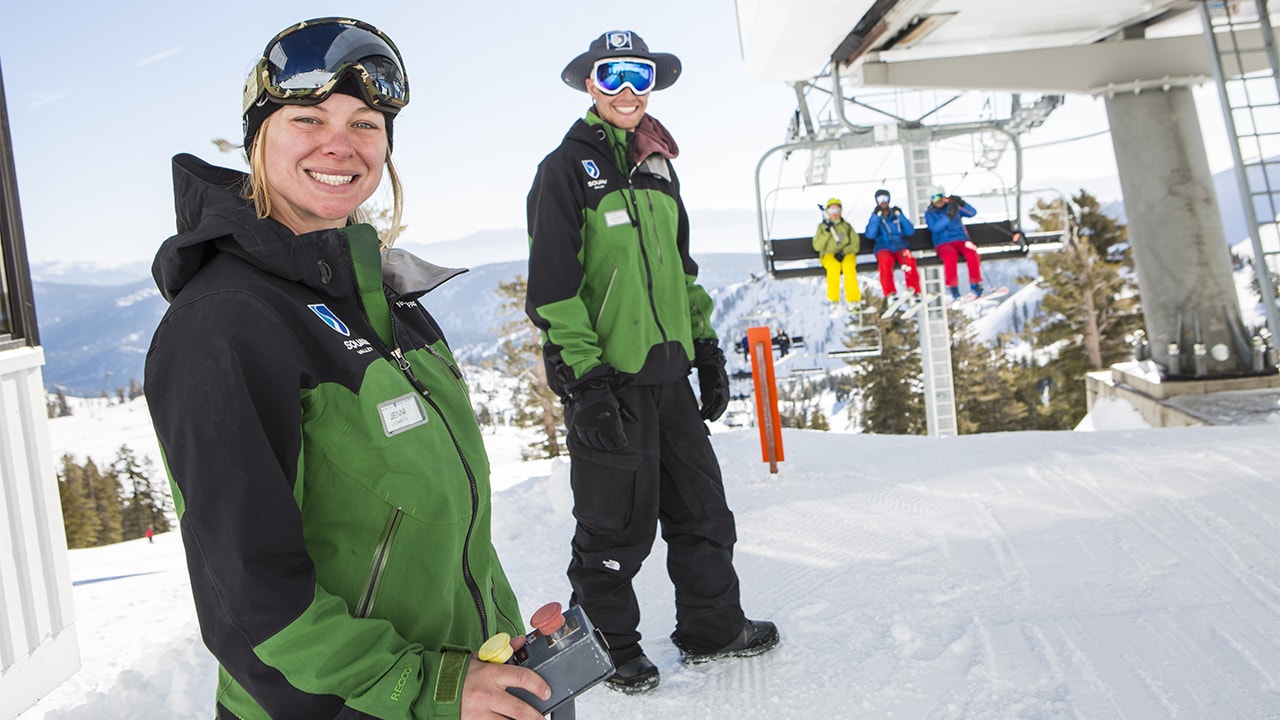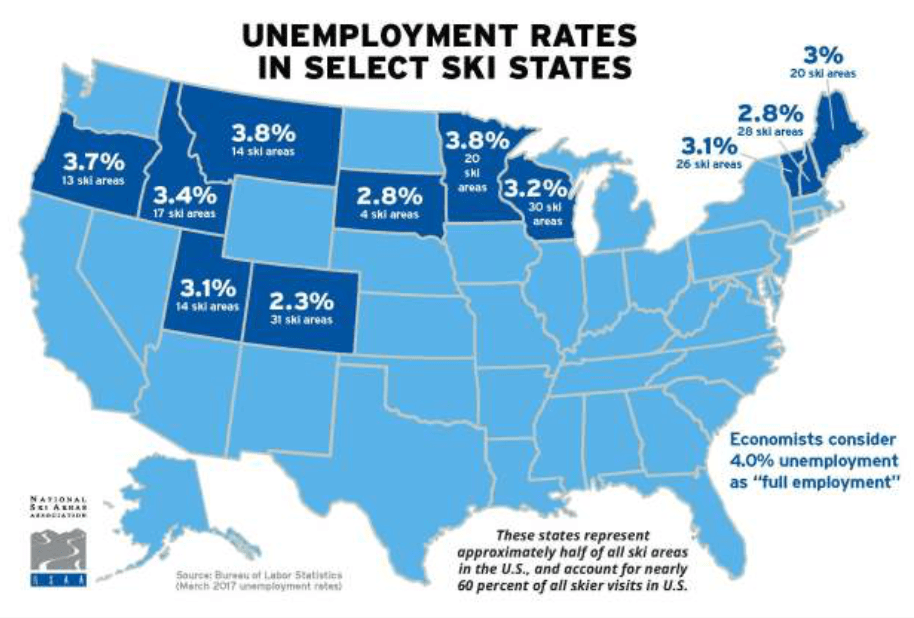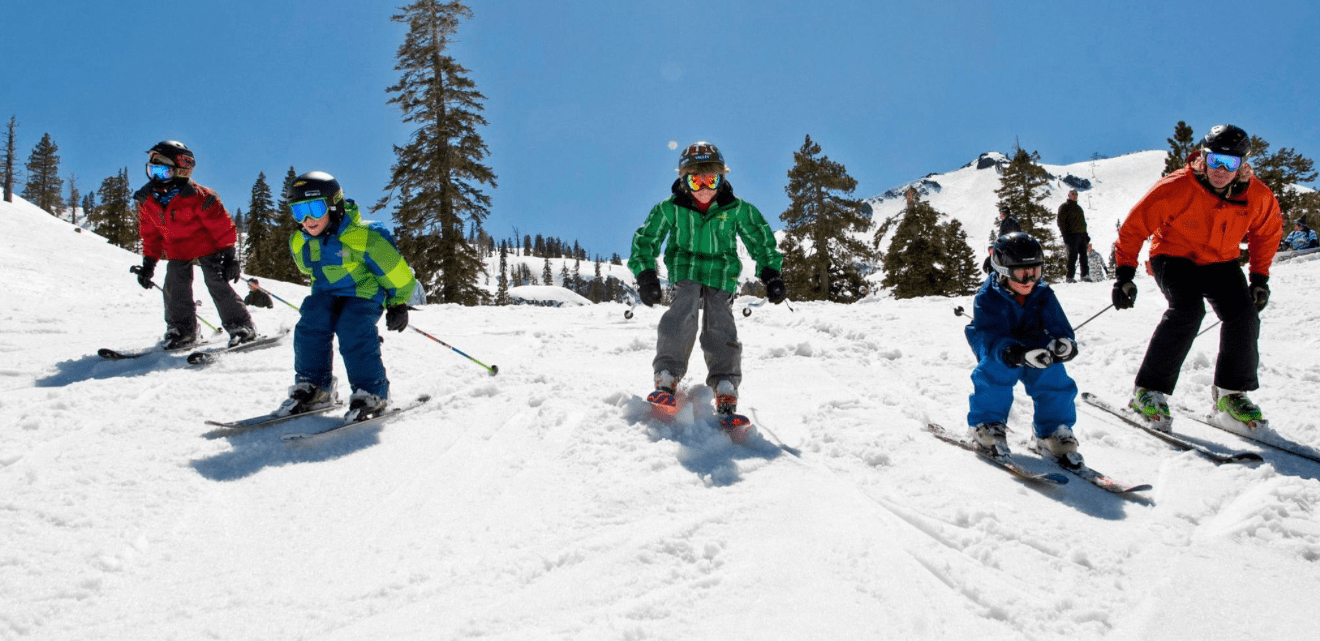
The nation’s ski industry is uniting to prevent cuts to a cultural visa program the Trump administration is considering overhauling, that currently allows foreign college students to work temporarily in the United States.
Ski resorts have become reliant on J-1 Summer Work Travel visa workers in the past five years, but recent reports that the White House is considering slashing or even eliminating the J-1 visa program as part of President Donald Trump’s “Buy American, Hire American” executive order, could have sweeping impacts on the American resort industry.
“It would be worse than the drought,” said Andy Wirth, whose Squaw Valley and Alpine Meadow ski areas in California endured three consecutive seasons of meager snow in a crippling drought. “We cannot, as an industry, have Trump sign that two months before we open.”

Ski operators defend the J-1 visa program, saying they can’t find enough American workers to fill the temporary jobs that are taken by the foreign students, many of whom visit the United States during a school break from December to mid-March, the height of the ski season in the United States. J-1 visa students from Australia, New Zealand, Brazil and Argentina account for about 8,000 of the ski industry’s roughly 130,000 seasonal workers. At Squaw Valley Ski Resort, CA, J-1 visa workers represent between 12%-15% of the staff, said Andrew Wirth, chief executive of Squaw Valley Ski Holdings, and ending the program would be a huge economic blow to the resort.
“We’ve always been interested in hiring local college students, but they don’t want the jobs,” said Dave Byrd, director of risk and regulatory affairs at the National Ski Areas Assn., a trade group for 460 ski resorts across the country. “They want year-round opportunities.”

The fight has grown urgent as the snow begins to fall and unemployment rates across the west reach historic lows. The resort industry is one of the West’s top rural economic drivers with unemployment in those rural locales being surprisingly low. In Colorado’s ski-area counties, unemployment rates are some of the lowest in the state, and Colorado’s unemployment rate of 2.4% is the lowest among 11 states that host 217 ski areas.
“All ski resorts hire Americans first and only augment staffing requirements with J-1 visas. This program does not take a single job from Americans. To recruit and employ J-1s actually costs ski areas more due to the recruiting and visa-processing costs,” said David Perry, the longtime Aspen Skiing Co. executive who recently took the reins of the new Denver-based, yet unnamed, resort company.

The J-1 visa program allows up to 300,000 foreign visitors, primarily college students, to visit the United States temporarily each year. The program includes 13 categories, such as summer workers, au-pairs, and research scholars. 85% of the visitors are 30 or younger. The Alliance for International Exchange shows summer-work travel exchange J-1 visa participants contributed $509 million to the U.S. economy in 2016, including 4,675 J-1 workers in Colorado contributing $24.8 million.
Byrd said he expects Trump may act on the J-1 visa program next week. “We really hope he doesn’t. We may have to sue him to stop him if he comes out and tries to eliminate the J-1 program.”
When you pay minimum wage in an area where the cost of living is much higher than the national average, of course you will not be able to fill jobs. These ass clown ski area execs need to go back to school and take Econ 101.
I am all for eliminating the J1 program. Where I work, every language except English is spoken and nobody understands each other. Communication breakdown! Customer service and work productivity suffers immensely.
I won’t go into detail but the more J1s that I work with the lower my paycheck is and I get stuck picking up their slack. Over it.
Thats ridiculous. Sorry. Lived in a resort town for 18 years as a year round home owner. Who would you like to fill those jobs man?